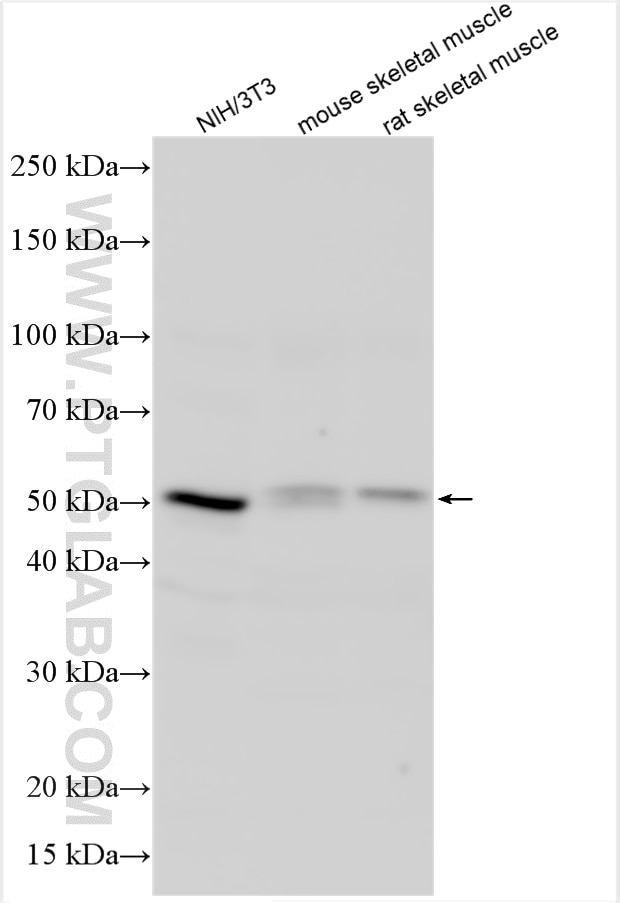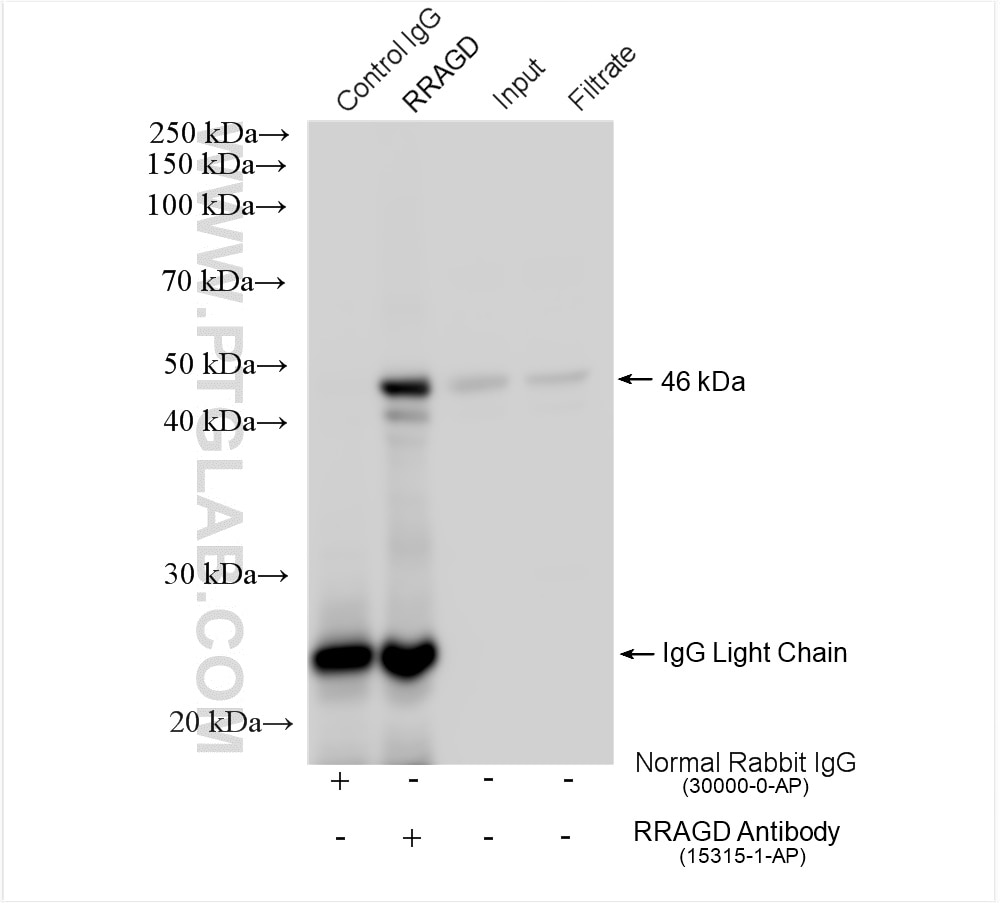RRAGD Polyclonal antibody
RRAGD Polyclonal Antibody for WB, IP, ELISA
Host / Isotype
Rabbit / IgG
Reactivity
human, mouse, rat
Applications
WB, IP, ELISA
Conjugate
Unconjugated
Cat no : 15315-1-AP
Synonyms
Validation Data Gallery
Tested Applications
| Positive WB detected in | NIH/3T3 cells, mouse skeletal muscle tissue, rat skeletal muscle tissue |
| Positive IP detected in | NIH/3T3 cells |
Recommended dilution
| Application | Dilution |
|---|---|
| Western Blot (WB) | WB : 1:500-1:1000 |
| Immunoprecipitation (IP) | IP : 0.5-4.0 ug for 1.0-3.0 mg of total protein lysate |
| It is recommended that this reagent should be titrated in each testing system to obtain optimal results. | |
| Sample-dependent, Check data in validation data gallery. | |
Product Information
15315-1-AP targets RRAGD in WB, IP, ELISA applications and shows reactivity with human, mouse, rat samples.
| Tested Reactivity | human, mouse, rat |
| Host / Isotype | Rabbit / IgG |
| Class | Polyclonal |
| Type | Antibody |
| Immunogen | RRAGD fusion protein Ag7557 |
| Full Name | Ras-related GTP binding D |
| Calculated Molecular Weight | 46 kDa |
| Observed Molecular Weight | 46-50 kDa |
| GenBank Accession Number | BC003088 |
| Gene Symbol | RRAGD |
| Gene ID (NCBI) | 58528 |
| Conjugate | Unconjugated |
| Form | Liquid |
| Purification Method | Antigen affinity purification |
| Storage Buffer | PBS with 0.02% sodium azide and 50% glycerol pH 7.3. |
| Storage Conditions | Store at -20°C. Stable for one year after shipment. Aliquoting is unnecessary for -20oC storage. 20ul sizes contain 0.1% BSA. |
Background Information
Ras-related GTP-binding protein D (RRAGD) is a monomeric GTP or GDP binding protein, which plays a critical role in mediating amino acid stimulated mTOR signaling pathway, a key pathway in determination of cell growth and proliferation rate. Recently, RRAGD has been reported involving the progression of ovarian cancer and colon cancer.
Protocols
| Product Specific Protocols | |
|---|---|
| WB protocol for RRAGD antibody 15315-1-AP | Download protocol |
| IP protocol for RRAGD antibody 15315-1-AP | Download protocol |
| Standard Protocols | |
|---|---|
| Click here to view our Standard Protocols |



